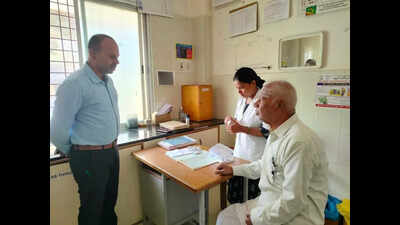- News
- City News
- mysuru News
- Govt diabetic clinics in Ch’nagar to enable hassle-free testing
Trending
Govt diabetic clinics in Ch’nagar to enable hassle-free testing
Mysuru: With the idea of helping the population in the region undergo diabetic screening and testing hassle-free, the district of Chamarajanagar has launched dedicated diabetic clinics. These clinics will to help people undergo get follow-up support easily and in a systematic way, along with documentation of their critical health parameters.
These diabetic clinics will operate every Wednesday between 7am and 11am, where the public are screened, and their health records are created for better management of diabetes.
Launched on Feb 5 by deputy commissioner Shilpa Nag, these clinics are operated in 59 primary health centres, 4 community health centres, 2 urban primary health centres, 3 taluk-level general hospitals, and 3 Namma clinics of the district.
The initiative streamlined the entire process of diabetic care in the district. Patients from remote villages can now complete their tests, receive doctor consultations, obtain prescriptions, and receive necessary counselling all in one visit. This integrated approach has significantly improved healthcare accessibility and management for diabetic patients in Chamarajanagar district.
"The early opening hours have been particularly beneficial for elderly patients who previously struggled to maintain their fasting state until the regular opening hours," he explained.
These diabetic clinics maintain detailed health records for each patient, both digitally and in physical format at the PHC level. These records include comprehensive details of their medical history, current medication, and test results. The systematic documentation helps healthcare providers track the progress of each patient effectively.
"We are able to compare the previous readings with the current readings through this documentation. It will help the doctors to advise on medicine and diet," he said.
The field staff members utilise these records during their village visits to provide targeted guidance and monitoring to the patients. They can access patient histories, verify current health parameters, and offer appropriate counselling based on the documented information.
BOX
Work done
Total no of diabetic patients screened: 3,326
Newly detected diabetics: 51
Source: District health department
End of Article
FOLLOW US ON SOCIAL MEDIA










